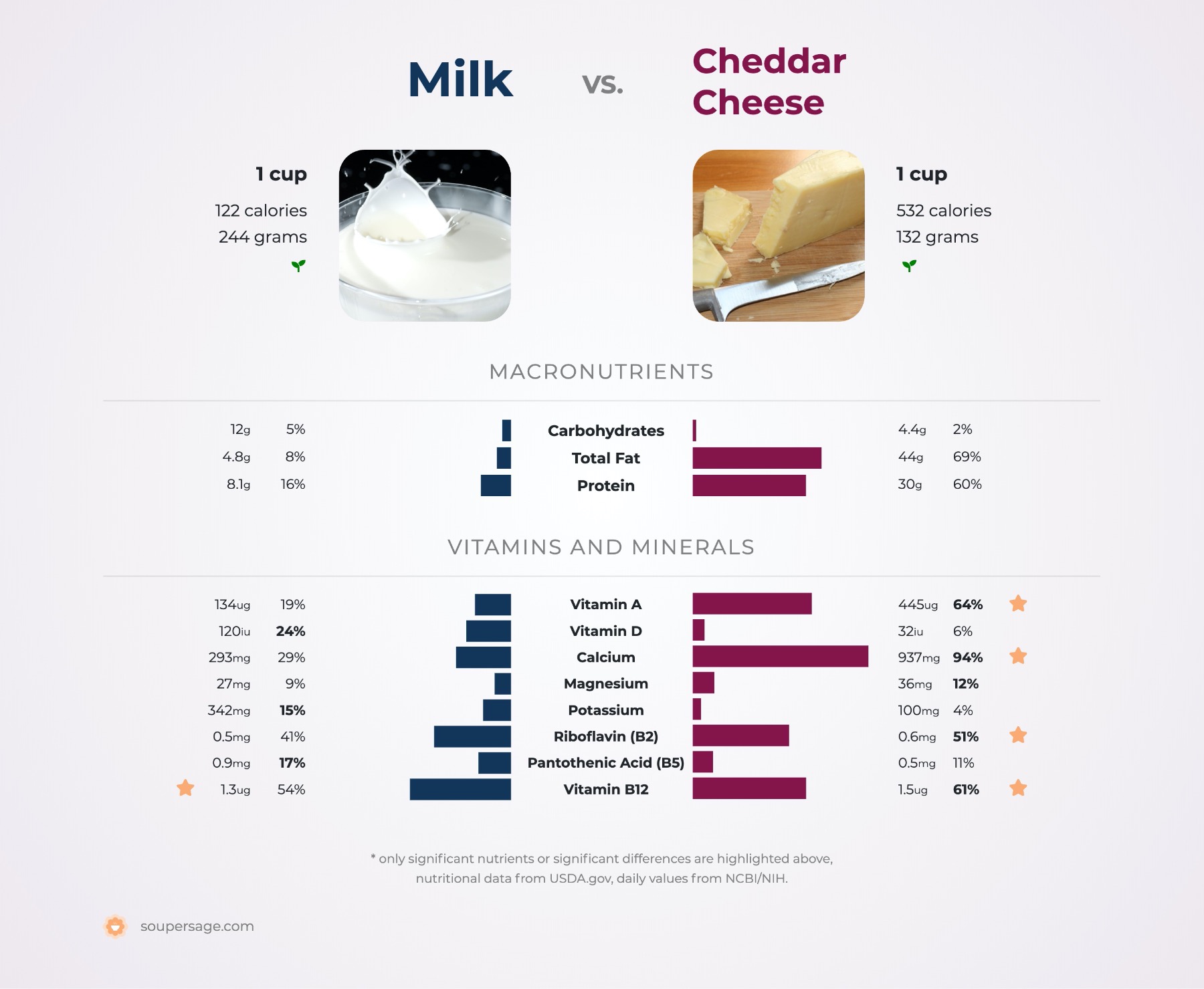-
Posts
11,406 -
Joined
-
Last visited
-
Days Won
355
Content Type
Profiles
Forums
Gallery
Downloads
Blogs
Events
Our Shop
Movies
Posts posted by old man emu
-
-
-
18 minutes ago, Yenn said:
what I really wouldn't have is a hamburger.
What's wrong with the hamburger you make yourself from red meat you mince yourself, eggs from your free-range chooks, onions from your garden patch and bread crumbs from a loaf you made yourself?
It's possible when you have the space to grow vegies and keep chooks, and can go see the butcher cut the meat from a carcase, but for the majority of use, that's impossible.
-
 1
1
-
-
1 minute ago, Marty_d said:
It's not rocket science, even an American could get it.
Brothers and Sisters, I say unto you, "If it is not in the Book of the Lord, it is the work of the Evil One. Even the Lord called on his apostles to sell a cloak and buy a sword and guard him on the night before his Passion."
-
 1
1
-
-
Dax, you seem dead set against consuming any type of dairy product. I see no harm in making them a portion of a diet. After all, milk is a rather dilute mixture.

We can concentrate the fats and Non-Fat Solids and call the concentrate "butter", and we can introduce bacteria to help cheese, which is a low sugar food.

1 Corinthians 9:25
Every athlete exercises self-control in all things. They do it to receive a perishable wreath, but we an imperishable.
-
What you have to keep in mind is that even electric motors need lubricants, of which most study has been done of those coming from oil.
8 minutes ago, Yenn said:The answer is to reduce fuel burn, not to change the fuel.
That is indeed the answer. Burning the fuel willy-nilly is what got us into this mess. We must work to replace fossil fuels as our main heat source. It's a battle of the Plebeians against the Patricians, but there are more Plebeians than Patricians.
Whatever, we must keep repeating the Serenity Prayer,
Father, give us courage to change what must be altered,
serenity to accept what cannot be helped,
and the insight to know the one from the other.
-
 1
1
-
-
27 minutes ago, Dax said:
Have seen some really weird sights in the sky at night where I live, some explainable some completely unexplainable and see one regularly what defies description.
Don't trust the scientists to give you a proper explanation. Doing so is not in their ideologies.
-
 1
1
-
-
The recent fatality on the set of a movie is a good time to get to know the technology of theatrical props.
-
3 minutes ago, Dax said:
No one would use monoculture, wild radish grows on just about anything an in very poor soils. With proper crop rotations and using seed oil plants to rejuvenate the soil as wild radish and come other weed seed crops provide a lot of nutrients by leaving the residue makes a huge difference.
Glad you added that clarification.
-
3 minutes ago, pmccarthy said:
The land would have to be diverted from other production or from natural vegetation.
One of the later agricultural developments, introduced in the 18th Century was the four-field rotation, which replaced the traditional three-field rotation introduced in Europe about 800 AD. Farmers practiced a three-field rotation, where available lands were divided into three sections. One section was planted in the autumn with rye or winter wheat, followed by spring oats or barley; the second section grew crops such as peas, lentils, or beans; and the third field was left fallow.
The sequence of four crops (wheat, turnips, barley and clover), included a fodder crop and a grazing crop, allowing livestock to be bred year-round. The four-field crop rotation became a key development in the British Agricultural Revolution. The rotation between arable and ley is sometimes called ley farming.
Both systems included a legume in the rotation. Legumes are plants which aid soil fertility by their mutually beneficial relationship with bacteria which take nitrogen from the air and convert it into compounds that can later be taken up by plants to make protein, which then is eaten by man and animals. The rsidual nitrogen compounds are available for the cereal crops in future years.
-
 1
1
-
-
There's a mob doing decorative balloon arrangements out my way that goes by the name Full O Wind
-
 1
1
-
-
Look at the amount of heat used in producing magnesium.
Heat 1. Dolomite ore is crushed and heated in a kiln to produce a mixture of magnesium and calcium oxides, a process known as calcining:

Heat 2. The next step is reduction of the magnesium oxide. The reducing agent is ferrosilicon (an alloy of iron and silicon) which is made by heating sand with coke and scrap iron, and typically contains about 80% silicon. The oxides are mixed with crushed ferrosilicon, and made into briquettes for loading into the reactor. Alumina may also be added to reduce the melting point of the slag. The reaction is carried out at 1650 to 2000 degrees C under very low pressure, close to vacuum. Under these conditions the magnesium is produced as a vapour which is condensed by cooling to about 1100 K in steel-lined condensers, and then removed and cast into ingots:

The reaction is endothermic (requires heat) and the position of equilibrium is in favour of magnesium oxide. However, by removing the magnesium vapour as it is produced, the reaction goes to completion.
-
1 hour ago, Dax said:
We can and do make plastics, lubricants and just abut anything else coming from fossil fuels from seed oils.
That is a very laudable solution, but there is an elephant in the room - monoculture. Agricultural monoculture upsets the natural balance of soils. Too many of the same plant species in one field area rob the soil of its nutrients, resulting in decreasing varieties of bacteria and microorganisms that are needed to maintain fertility of the soil.
Oil palm plantations currently cover more than 27 million hectares of the Earth’s surface. Forests and human settlements have been destroyed and replaced by “green deserts” containing virtually no biodiversity on an area the size of New Zealand. At 66 million tons annually, palm oil is the most commonly produced vegetable oil. Its properties lend themselves to processed foods leading the food industry to use it in half of all supermarket products.
Almost half of the palm oil imported into the EU is used as biofuel. Since 2009, the mandatory blending of biofuels into motor vehicle fuels has been a major cause of deforestation. With their CO2 and methane emissions, palm oil-based biofuels actually have three times the climate impact of traditional fossil fuels.
Day after day, huge tracts of rainforest in Southeast Asia, Latin America and Africa are being bulldozed or torched to make room for more plantations, releasing vast amounts of carbon into the atmosphere. As a consequence, Indonesia – the world’s largest producer of palm oil – temporarily surpassed the United States in terms of greenhouse gas emissions in 2015.
Palm oil is not only bad for the climate: As their forest habitat is cleared, endangered species such as the orangutan, Borneo elephant and Sumatran tiger are being pushed closer to extinction. At the same time, the indigenous peoples who have been part of the forest environment for millennia are suffering a similar fate at the hands of global corporations.
-
 3
3
-
 2
2
-
-
1 hour ago, onetrack said:
Then we have the processed products such as bottled orange juice.
I have some Berri Orange juice in the fridge. Australian content - zero. How's this for corporate BS http://www.berriaustraliangrown.com.au/our-story/
-
 1
1
-
-
2 hours ago, Marty_d said:
They only put that there because they don't know if the dish licker is pregnant or not.
Ah!

-
 1
1
-
-
Three fossil fuel - coal, oil and natural gas. They can be used to produce long chain carbon compounds that are used to make everything from cars to food additives. ( Let it pass, Dax.) So they are not only energy sources. If we really make an effort to go all electric, we won't need these as energy sources. However, several mineral ores cannot be smelted without a great deal of heat, so we will always have to burn some fossil fuels.
As I said, it only took little Johnny Howard to stand up and shout and we were able to make our Nation safe from misuse of firearms in two short years. If someone else was willing to stick their neck out and take on the the Corporate Robber Barons, I reckon we could reach close to zero emissions in 10 to 15 years, and make big profits to boot.
-
 1
1
-
 3
3
-
-
Remember when you were a kid and your Mum told you that if you were good while she was making cakes, you could lick the bowl? Nowadays, packet cake mixes come with a warning not to eat the uncooked batter as it contains raw egg. How did we ever survive? And what does this warning mean for the Yuletide Eggnog?
-
 2
2
-
 1
1
-
-
A few years ago, a Liberal Prime Minister put his foot down and said, "No more massacres", and said that he would buy any gun that a person wanted to surrender to the Crown. Result: we don't got no massacres.
Port Arthur was the last straw. Australia’s reaction was immediate and strident. The earlier succession of mass shootings had made gun control a prominent public issue, but now widening coalitions for gun control ignited a wildfire campaign for law reform. The nation’s newly elected prime minister was John Howard, its most conservative leader in decades. If any constituency might be forgiven for assuming the legal status quo, it was the rural and gun-owning rump of the Liberal–National Coalition that had swept him to power.
Yet, less than two weeks after Port Arthur, Howard’s government delivered a nationwide bipartisan gun law reform. After decades of forcing politicians into repeated consultation, electoral weakness and delay, Australia’s gun lobby was outpaced, outflanked and outwitted by a leader with both the mandate and the personal conviction to move decisively within 12 remarkable days.
That's what it's going to take to get to Near-Zero Carbon emissions - a Prime Minister with balls as big as watermelons whose prepared to put the people before profit. No more pussy-footing about. We want a leader who will act like the heroine of the Ancient Greek play, Lysistrata who sought the end the war between Athens and Sparta by urging women on both sides to keep their legs together.
We have the technology and the resources to abandon the use of coal to generate electricity. The sources of non-polluting fuels for motive power are being extensively studied. Finance those things and the coal we mine can be used for making reusable things. Thousands of products are made with coal or coal by-products, including aspirins, soap, dyes, solvents, plastics, and fibres such as rayon or nylon.
-
 1
1
-
 1
1
-
-
-
2 hours ago, Dax said:
chemical antibiotics destroy not only your gut bugs, but your immune system as well
There's a great deal of truth in that statement. Most of our gut micro-population lives in our large intestine where the various types of bugs do all sort of amazing things for us. Your gut flora performs many important health functions. It manufactures vitamins, including vitamin K and some of the B vitamins. It also turns fibres into short-chain fats like butyrate, propionate, and acetate, which feed your gut wall and perform many metabolic functions. These fats also stimulate your immune system and strengthen your gut wall. This can help prevent unwanted substances from entering your body and provoking an immune response. Even that well-known traveller in faecal matter, E. coli is mostly good for us. It's just that there are a few black sheep in the family which give us the shlts.
Your gut flora is highly sensitive to your diet, and studies show that an unbalanced gut flora is linked to numerous diseases. Good quality, fresh food eaten in moderation will keep the gut flora happy. Like anything else, too much of a good thing is bad for the gut bugs. So, big doses of antibiotics will cause much collateral damage to the good guys. After a bout of exploding gut, you are not likely to be wanting to eat a great deal, and will have a fear of the foods that you think caused it. Add to this the annihilation of the good guys and you can see why it would take quite a while to get things back to normal.
-
 2
2
-
-
Spacey,
The Once Times table:
Once one is one.
Once two is two.
Once three is three
and so on.
1.4142 x 1.4142 = 1.99996, which to the closest ten thousandth is 2.
However, the square root of -1 is something i can't figure out.
-
Yenn,
New houses in Sydney have to have a rainwater tank, but I think that is only as a non-drinking supply to be used for gardening and car washing. With the way that houses are packed into new developments, there's no tree for birds, so one is not likely to get a dead magpie in the tank, and frogs and snakes have moved on long ago.
Maccas has the market because it advertises so heavily. Hungry Jacks is, in my opinion, a better product, but suffers because it can't match Maccas' advertising bombardment. I've had a bus load of hungry kids make me drive past a HJ's simply to get to the next Maccas. The next problem is serving size from all fast food outlets. You'd think that a kebab or Subway would be a good dietary choice, but by the time you add this 'n' that you end up with enough to feed the Five Thousand. Ditto for pizza, shushi, and noodles. If you are going to buy a fish dinner, avoid the battered fish. One, because you never know how much fish is hidden beneath the batter, and two because the batter is a fat sponge. Better to have the fish "grilled" on a hot plate.
1 hour ago, Yenn said:Do those antibiotic pills do our gut any good, or could they be one of the causes of obesity?
If you mean the antibiotics prescribed by a doctor in the course of treating an infection - YES. They will knock about your gut flora. But that is only for the duration of the treatment. If you want to bounce back, take probiotics.
Probiotics are living microorganisms that, when ingested, provide a health benefit. Probiotics are usually bacteria, but certain types of yeasts can also function as probiotics. The most common probiotic bacteria are Lactobacillus and Bifidobacteria. Other common kinds are Saccharomyces, Streptococcus, Enterococcus, Escherichia, and Bacillus. Gut bacteria help us to digest plant material. Many of them produce the vitamins that we need, but don't have the physiology to make in our bodies. Of course there are some bad dudes, but a healthy gut flora keeps them in check. Your gut flora is highly sensitive to your diet, and studies show that an unbalanced gut flora is linked to numerous diseases. These diseases are thought to include obesity, type 2 diabetes, metabolic syndrome, heart disease, colorectal cancer, Alzheimer’s, and depression
Before pharmaceutical companies existed, we got our probiotics from the food we ate and drank. You can get probiotics from foods prepared by bacterial fermentation such as yoghurt, sauerkraut and bread. Before pasteurisation, beer was an important source of probiotics in those countries that made it.-
 3
3
-
-
-
1 hour ago, facthunter said:
I'm glad it's you doing it and not me
I do it knowing that I have your willingness to support the high standards of this site. Well, mostly high standards. Some of the stuff in Funnies is pretty lowbrow.
-
 3
3
-
-
Maybe we should add another special day "Root Two" on 14th January. Then again, I'd be happy just to be able to root one.
For the mathematically uninclined, the square root of the number 2 is 1.41, hence 14/1/**** in the correct format.
-
 1
1
-








What we eat
in General Discussion
Posted
Bread is a very simple product to make.
Plain flour - 2 cups
Warm water - 375 mls
1 x tea spoon sugar (in the water)
Yeast - 1 x 7gm sachet of dried yeast added to sugared water and allowed to activate.
The trick with making bread is to knead the dough vigorously for ten minutes before setting it aside to rise.
After it has risen, punch it down and give it a minute's kneading before putting into a tin (or not if you like peasant bread) and letting it rise again.
Then cook it at 260C for 15 minutes, then drop the temperature to 230 for another 15 minutes.